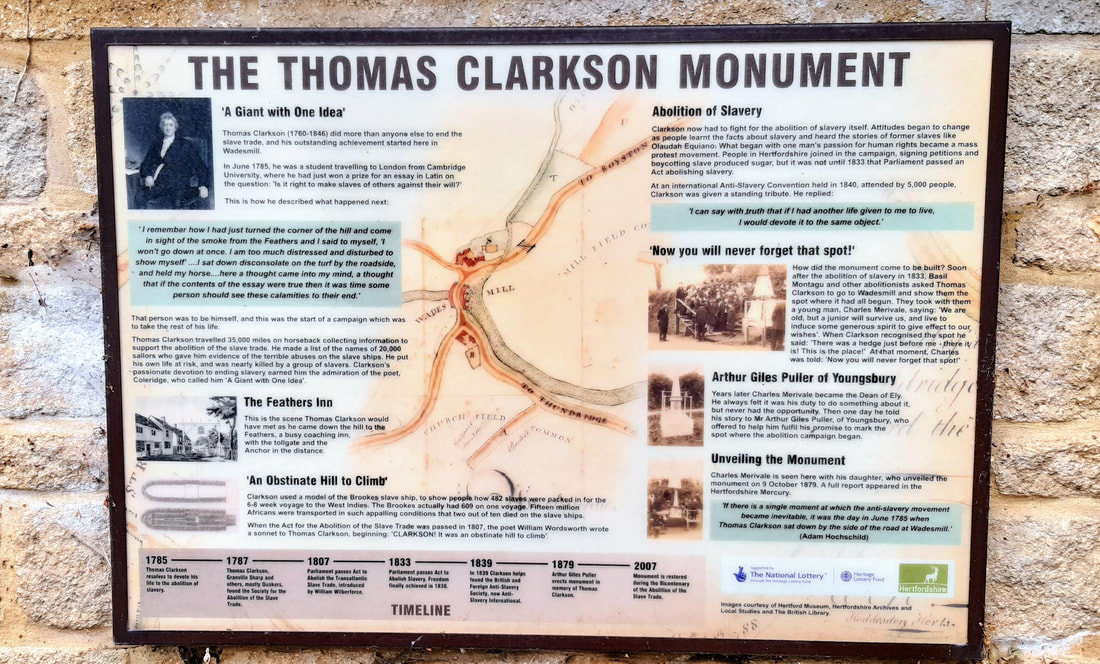 While East Herts may seem far from the Caribbean, it was at the heart of the campaign to end the slave trade and then to free the enslaved plantation workers. This is the Clarkson memorial on the hill at Wadesmill, just north of Ware, the spot where in 1785, Thomas Clarkson resolved to take action to end the slave trade. He became one of the leading campaigners nationally (https://en.wikipedia.org/wiki/Thomas_Clarkson) and was supported by many in the area, such as Rev William Hughes, vicar of Thundridge at the time, and David Barclay of Youngsbury. Women played a major role in the abolition campaign, organising petitions to Parliament and orchestrating a sugar boycott to hit the slave-owners where it hurt – in the pocket. And yet, at the same time, the abolitionists were surrounded in Hertfordshire (as in most counties) by the large houses and wealthy estates benefiting from the profits from plantations. Our play is set in 1823. The slave trade has been abolished, resistance is growing among the enslaved plantation workers themselves. But the British establishment blocks emancipation at every turn. Though the abolitionist cause seems hopelessly stalled, Thomas Clarkson is not giving up. Once again, he visits Wadesmill… More news as we progress with plans for this play in 2023.
0 Comments
|
 RSS Feed
RSS Feed
